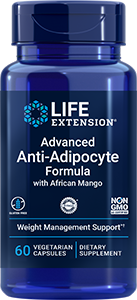|
Tuesday, October 14, 2014. Metabolically obese, normal-weight (MONW) individuals are those who exhibit such metabolic syndrome components as fasting glucose levels of 100 milligrams per deciliter (mg/dL) or more, insulin resistance, elevated triglycerides, and/or high blood pressure in the absence of obesity. In a study described in the July 2014 issue of the Archives of Medical Research, Martha Rodríguez-Moran and Fernando Guerrero-Romero of the Mexican Social Security Institute's Biomedical Research Institute sought to determine the effects of magnesium supplementation in 47 MONW men and women with low serum magnesium levels. In a randomized double-blinded trial, participants were divided to receive a 5% magnesium chloride solution that provided 382 mg magnesium or a placebo solution daily for four months. Blood pressure and fasting plasma glucose, serum magnesium, triglycerides and insulin were measured before and after the treatment period.
Although no significant differences were observed between the groups before treatment, average systolic and diastolic blood pressure readings were lower at the end of four months among those who received magnesium, while those who received a placebo experienced an increase. While serum magnesium levels rose, fasting plasma glucose, insulin resistance and triglycerides were significantly lower in the magnesium-supplemented group compared to the placebo group by the end of the study.
The authors observe that "even among normal weight individuals, magnesium supplementation may be effective for the reduction of hyperglycemia, hypertriglyceridemia, insulin resistance, and blood pressure, features of the MONW phenotype."
"Our finding strongly suggests that irrespective of body weight, magnesium plays an important role in the regulation of metabolic disturbances and blood pressure," they conclude.
|
|







